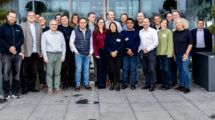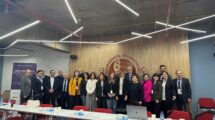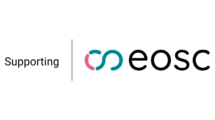400 Gbps Spectrum-based Circuits Deployed on New Subsea Cable System to Advance Global Scientific Collaboration and Innovation
WASHINGTON, D.C., March 14, 2024 – Internet2, in a joint effort with CANARIE, the Energy Sciences Network (ESnet), and GÉANT, announced today a major expansion of 400 gigabits per second (Gbps) transoceanic circuit capacity dedicated to transferring research and education (R&E) data. As part of the Advanced North Atlantic (ANA) collaboration, this marks a significant achievement in high-speed connectivity between North America and Europe, supporting data-intensive science globally.
ANA’s network expansion supports multinational, data-intensive science collaborations, including the Large Hadron Collider (LHC), the world’s largest and most powerful particle accelerator, and the Square Kilometer Array (SKA), the ongoing effort to build the world’s largest radio astronomy observatory. It adds much-needed capacity for transmitting instrument findings to researchers globally, enabling ground-breaking discoveries.
The joint effort adds three 400 Gbps spectrum circuits between exchange points in the U.S., U.K., and France. The new connections utilize the record-breaking 400 terabits per second (Tbps) trans-Atlantic Amitié subsea cable system completed in July 2023, which spans 6,783 kilometers (4,215 miles). The flexibility and scalability of these spectrum circuits enable significant capacity growth on the same infrastructure, achieved through future equipment upgrades at exchange points.
The collaboration among CANARIE, ESnet, GÉANT, and Internet2 to leverage the new subsea infrastructure started in 2020, following an R&E community-driven proposal to modernize and augment intercontinental connectivity to support research. It culminated after a years-long process of technical planning, acquisition, and deployment.
As a result, the global R&E network fabric gains critical capacity and resiliency between North America and Europe. With the addition of the new circuits, the combined capacity of the ANA collaboration’s trans-Atlantic network is now 2.4 Tbps.
International Collaboration for Intercontinental Connectivity
ESnet will operate two of the 400 Gbps transoceanic circuits in support of U.S. Department of Energy national laboratories, supercomputing facilities, major scientific instruments, and global collaborators, bringing its total 400 Gbps transoceanic circuits to three. Internet2 will operate one circuit for members of the U.S. R&E community, as well as its North American partner CANARIE.
To support these new connections and other emerging capacity needs for data-intensive science in the U.S. and internationally, Internet2 recently bolstered its global exchange points on the East Coast. That included adding a new 400 Gbps exchange point in Boston, MA. Internet2 also augmented two existing exchange points with 400 Gbps switching capacity: the Manhattan Landing (MAN-LAN) in New York, NY, and the Washington International Exchange (WIX) in McLean, VA. With the project’s completion, Internet2 is among the first R&E networks to operate 400 Gbps global exchange points.
From the endpoints of the Amitié cable systems in the U.K. and France, GÉANT is providing the connectivity to deliver the trans-Atlantic traffic to the London, Geneva, and Paris points of presence on its pan-European network backbone. Looking ahead, GÉANT is also planning to further reinforce the ANA collaboration’s capacity by upgrading its trans-Atlantic connectivity via the GN5-IC1 project, in response to the rapidly growing needs of data-intensive research collaborations between Europe and North America.
“We are thrilled to be part of this momentous undertaking alongside our partners Internet2, ESnet, and GÉANT,” said Mark Wolff, chief technology officer at CANARIE. “This advancement in trans-Atlantic high-speed connectivity will enable researchers and students in Canada to contribute to and benefit from global scientific discoveries and is truly a testament to the collaborative ethos of the global research and education networking community.”
“ESnet is excited to be working with the R&E networking community to fulfill our goal of building the necessary bandwidth to support the expanding data-intensive needs of global scientific research collaborations, such as the high-luminosity upgrade of the LHC,” said Jon-Paul Herron, head of ESnet Network Services.
“As the world region with which GÉANT exchanges the most international R&E traffic, the R&E networks in the U.S. and Canada stand as key strategic partners for GÉANT. This long-standing collaboration is a fundamental element in the fabric of global research,” said Paul Rouse, chief community relations officer at GÉANT. “GÉANT welcomes this historical milestone, as a key step into the next generation of trans-Atlantic connectivity. We are proud of this contribution and look forward to further contributing to the ANA collaboration.”
“Being among the first to deliver spectrum-based 400 Gbps transoceanic connections dedicated to research and education is a truly pioneering achievement,” said James Deaton, vice president of Network Services at Internet2. “Internet2 is proud to collaborate with CANARIE, ESnet, and GÉANT to reach this significant milestone for resilient and robust global connectivity, and we are excited by the possibilities created collectively to accelerate scientific discovery across continents and around the world.”
About CANARIE
CANARIE connects Canada to the world. Its programs equip researchers, students, and startups in Canada to excel on the global stage. Together with its 13 provincial and territorial partners, CANARIE forms Canada’s National Research and Education Network (NREN). This ultra-high-speed network connects Canada’s researchers, educators, and innovators to each other and to global data, technology, and colleagues. To strengthen the security of Canada’s research and education sector, CANARIE collaborates with its partners in the NREN, government, academia, and the private sector to fund, implement, and support cybersecurity initiatives. It also provides identity management services to the academic community and boosts Canada’s startups with cloud resources and expertise in emerging technologies.
About ESnet
Energy Sciences Network (ESnet) operates a high-performance network built to support and facilitate big-data scientific research across America and worldwide. Funded by the U.S. Department of Energy’s (DOE) Office of Science and managed by Lawrence Berkeley National Laboratory, ESnet connects the DOE national laboratories, supercomputing facilities, and major scientific instruments, as well as additional research and commercial networks, to enable global collaboration on the world’s biggest scientific challenges.
About GÉANT
GÉANT is Europe’s leading collaboration on network and related infrastructure and services for the benefit of research and education, contributing to Europe’s economic growth and competitiveness. The organisation develops, delivers, and promotes advanced network and associated e-infrastructure services, and supports innovation and knowledge-sharing amongst its members, partners, and the wider research and education networking community.
About Internet2
Internet2® is a nonprofit, member-driven advanced technology community founded by U.S. leading higher education institutions in 1996. Internet2 delivers a diverse portfolio of technology solutions that leverages, integrates, and amplifies the strengths of its members and helps support their educational, research, and community service missions. Internet2’s core infrastructure components include the largest and fastest research and education network in the U.S. that was built to deliver advanced, customized services that are accessed and secured by the community-developed trust and identity framework.
Media Contact:
Amber Rasche
Internet2 Communications
arasche@internet2.edu







